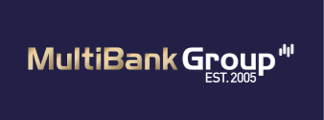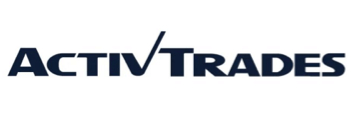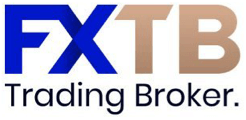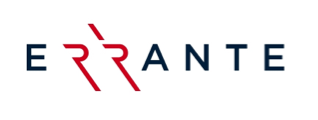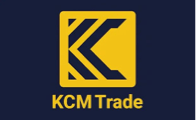Axi (formerly AxiTrader) is an Australian broker founded in 2007 that has built its brand around a familiar promise in retail trading: strong regulation, fast execution, and competitive pricing on MetaTrader. Over time, it has positioned itself as a practical option for traders who want a clean MT4/MT5 workflow, access to multiple CFD markets, and account structures that can scale from casual trading to higher-volume activity. In a market crowded with offshore leverage-driven brokers, Axi’s core identity is more infrastructure-led than promotion-led.

Between 60 to 80% of retail CFD accounts lose money.
| Regulators | ASIC FCA DFSA FMA CySEC |
|---|---|
| Minimum Deposit | $0 |
| Leverage | Between 1:30 and 1:1000 | Payment Methods | Bank Transfer PayPal Spei OXXO Skrill Neteller Cryptocurrencies |
For Asian traders, Axi’s appeal typically comes from three angles: the comfort of recognizable regulation, the flexibility of no mandatory minimum deposit on key accounts, and a cost model that offers both spread-only simplicity and a raw-spread style option with commission for tighter pricing. The broker also emphasizes operational basics that matter in day-to-day trading—segregated client funds, negative balance protection, and a platform environment that supports both manual trading and automation through MetaTrader.
At first glance, Axi presents a professional, execution-focused experience rather than a “bonus-first” storefront. The proposition is straightforward: choose a Standard account for simple pricing, or choose Pro/Elite-style pricing for lower spreads with commission. This is the kind of decision framework that many Asian traders appreciate because it maps directly to strategy needs—swing traders often value predictability and clean cost visibility, while short-term traders prioritize spread tightness and repeatable execution.
That said, Axi’s profile also comes with important operational caveats drawn from real-world user feedback: withdrawals have been reported as a pain point by some users, account verification can feel more complicated and slow than expected, and the demo account is limited to 30 days. None of these points automatically disqualify the broker, but they do change how a trader should approach onboarding and early-stage testing.
Overall, Axi’s first impression is that of a serious MetaTrader broker with a global footprint and credible oversight. For Asia-Pacific traders who want a broker that feels closer to regulated “infrastructure trading” than marketing-driven CFD selling, Axi typically lands in the “practical, but verify the operational workflow early” category.
Regulation
Regulation is one of Axi’s main credibility anchors. The broker operates under multiple recognized regulators, which generally implies stronger compliance expectations around conduct, reporting, and client money handling than what traders get from purely offshore brokers. For Asian traders, this matters because regulatory quality is closely tied to dispute resolution options, the broker’s incentives around risk controls, and the overall probability of unpleasant surprises during stress events.
- Australia: Regulated by the Australian Securities and Investments Commission (ASIC).
- United Kingdom: Regulated by the Financial Conduct Authority (FCA).
- Dubai (UAE): Regulated by the Dubai Financial Services Authority (DFSA).
- New Zealand: Regulated by the Financial Markets Authority (FMA).
- European Union: Regulated by the Cyprus Securities and Exchange Commission (CySEC).
From a protection standpoint, this lineup is meaningfully stronger than low-tier offshore licensing. Client funds are described as segregated, and negative balance protection is available, which reduces the risk of owing money beyond the deposited amount in adverse market conditions. The practical implication for Asian traders is that Axi generally presents lower counterparty risk than lightly regulated alternatives, especially when the account is onboarded under a stronger jurisdiction. However, regulation does not eliminate operational friction—so verification and withdrawals should still be tested early with small amounts before scaling capital.
Account Opening – Our Experience
Opening an account with Axi is designed to be fully online and follows a standard regulated broker workflow: registration, identity verification, and account approval. The broker supports a streamlined onboarding journey, but it is also explicitly reported that verification can be complicated and prolonged for some users. Practically, that means a trader should allocate time for document checks and avoid leaving verification until the moment funding is urgent.
A key differentiator is that Axi does not require a mandatory minimum deposit for its Standard and Pro-style accounts. This can be attractive for Asian traders who want to test execution and platform conditions before committing meaningful funds. Even so, the broker recommends having around USD 200 to trade comfortably, which is a realistic framing because margin requirements and position sizing quickly make very small balances impractical.
Funding methods include Visa, MasterCard, bank transfer, and several e-wallet options such as Neteller, PerfectMoney, and Jeton. Axi states no fees for deposits or withdrawals on its side, though payment providers or intermediary banks may still charge their own fees depending on the route.
Overall, the account opening experience can feel smooth when documents pass quickly, but the “complicated and prolonged verification” feedback is important. The most practical approach is to complete verification early, test a small deposit and withdrawal cycle, and only then treat the broker as an operational base for larger activity.
Account Types
Axi’s account structure is built around two main cost models: a Standard account with spread-only pricing and a Pro/Elite-style setup where spreads can be near-zero but the broker charges a commission. This structure is conceptually clean and aligns with how traders actually think about costs—either “simple spread pricing” or “raw pricing plus commission.” For Asian traders, it offers a straightforward decision: if strategy relies on frequent entries and tight cost control, the commission model can be more suitable; if strategy is slower and cost sensitivity is lower, Standard pricing may be easier to manage.
| Account Type | Spread Model | Minimum Deposit | Commission | Platforms Available | Best For |
|---|---|---|---|---|---|
| Standard | From ~0.7–1.0 pips | USD 0 (no mandatory minimum) | None | MT4, MT5 (web & mobile) | Traders who want simple pricing and cost visibility |
| Pro / Elite | From 0.0 pips | USD 0 (no mandatory minimum) | ≈ USD 3.50 per lot | MT4, MT5 (web & mobile) | Active traders prioritizing tighter spreads and execution efficiency |
The practical trade-off is familiar: Standard accounts simplify cost accounting but can be more expensive for frequent trading; Pro/Elite-style accounts can reduce spread friction but introduce commission, which is better assessed by looking at total round-turn cost per instrument. Regardless of account type, the leverage available depends on jurisdiction, so Asian traders should evaluate the entity they are onboarded under and match leverage to a risk-managed position sizing plan.
Platforms
Axi supports MetaTrader 4 and MetaTrader 5 across web and mobile environments, which is the most important point for most traders. MT4 remains a staple for forex-focused trading and EA-driven automation, while MT5 provides a more modern architecture and broader market tooling. For Asian traders who already operate within the MetaTrader ecosystem, this reduces switching friction and makes Axi easier to integrate into existing workflows.
Platform reliability is not just about having MT4/MT5 available; it’s about day-to-day usability: stable sessions during Asia hours, consistent chart performance on mobile, and a clean order workflow. Axi’s positioning emphasizes fast execution, which matters most for short-term strategies where small differences in fill quality can accumulate over time. The broker also indicates support for high-volume or institutional-style traders, suggesting the infrastructure is designed to handle more demanding execution needs.
Because the platform choice is standardized, the real differentiation shifts to execution consistency, spreads/commission structure, and operational reliability (verification and withdrawals). In other words, Axi’s platform offering is familiar and broadly acceptable—the question for Asian traders is whether the total experience around it is smooth enough to run at scale.
Assets
Axi offers CFDs across a multi-asset list that covers the core categories most retail traders care about: forex, indices, commodities, crypto, and additional CFD markets including shares and futures. The instrument coverage is meaningful for traders who want to diversify beyond currencies without opening multiple broker accounts, though it remains a CFD environment rather than a “real asset” investing platform.
Available Assets
Below you can see which assets are available for trading with Axi:
| Asset | Availability |
|---|---|
| Currencies | 75 |
| Real Stocks | ✗ |
| Stock CFDs | ✓ |
| Commodities | ✓ |
| Indices | ✓ |
| Real ETFs | ✗ |
| ETFs CFDs | ✗ |
| Futures | ✓ |
| Options | ✗ |
| Bonds | ✗ |
| Cryptocurrency CFDs | ✓ |
| Real Cryptocurrencies | ✗ |
*Availability of certain assets may vary based on account type, platform, or region.
From an Asia perspective, the practical value of this range is flexibility across sessions. Forex is active around the clock, indices and commodities give macro-driven traders additional expression tools, and crypto CFDs can extend opportunity windows beyond traditional market hours. The important constraint is that these are leveraged derivatives—costs and risk scale quickly with leverage, and overnight financing can materially affect longer holds.
Overall, Axi’s asset menu fits the profile of a trading broker rather than a long-term investing venue. Traders who want real shares or physical ETFs typically look elsewhere; traders who want CFD exposure across key markets in one MetaTrader-based setup will find the offering broadly aligned with that objective.
Spreads
Axi’s spread structure is designed to offer two clear paths: a Standard account with spreads typically in the ~0.7 to 1.0 pip range and no commission, and a Pro/Elite-style pricing model where spreads can start from 0.0 pips with a commission of approximately USD 3.50 per lot. For Asian traders, this split is useful because it maps to strategy type. Lower spreads with commission tend to suit more frequent trading styles, while spread-only pricing suits traders who want simplicity and fewer line items to track.
Spreads Offered
Below a visual representation of Axi's spreads across several currency pairs:
*Spreads are variable and may change based on market conditions, account types and trading volumes.
As a practical guideline, traders should evaluate total cost, not just the headline spread. A “0.0 pip” spread is only meaningful when combined with commission and typical execution behavior. The right way to judge pricing is to look at average effective spread during the session a trader actually trades (for many Asian traders, that’s the Asia session and the Asia-Europe overlap), then convert commission into pip-equivalent cost on the traded lot size. This is where the Pro/Elite model can be materially better for high-frequency strategies.
Standard pricing can still be perfectly rational for traders who place fewer trades and hold longer, where spread cost becomes a smaller fraction of expected move size. The key is aligning the account type with the strategy’s trade frequency and holding time—otherwise, traders end up paying “the wrong kind of cost” for their style.
Other Trading Costs
Axi states it does not charge fees for deposits or withdrawals, which is a meaningful operational benefit in a region where cross-border payment costs can otherwise erode returns. That said, third-party providers—banks, card issuers, or intermediaries—may still apply fees, especially on international transfers. This is not unique to Axi, but it matters because traders often incorrectly assume “no broker fee” means “no total fee.”
Overnight financing (swap) costs apply to leveraged CFD positions held beyond the trading day, and these costs can be a larger performance driver than spreads for longer holds. Negative balance protection reduces the risk of catastrophic debt in extreme volatility, but it does not remove the day-to-day drag of financing on slow strategies. Traders should plan position holding time around expected swap impact, particularly on indices, commodities, and crypto where financing can be non-trivial.
Finally, the operational cost that cannot be ignored is “process friction.” Axi has user-reported issues around withdrawals and prolonged verification. These are not line-item fees, but they are real costs in time and uncertainty. The practical solution is to test the workflow early: verify fully, deposit small, withdraw small, and only then increase capital. In trading, operational reliability is part of risk management, not an afterthought.
Trading Conditions
Axi’s trading conditions are structured around jurisdiction-based leverage, fast execution, and standard risk controls such as segregated funds and negative balance protection. Leverage varies depending on the regulatory entity and client location, which is typical for a broker operating under multiple regulators. For Asian traders, the key is understanding which entity applies to the account, because leverage, protections, and dispute frameworks can differ meaningfully by jurisdiction.
Execution is positioned as a strength, particularly for traders who care about speed and repeatability. This matters for short-term trading where small differences in fill quality can accumulate into significant performance variance over time. Axi also signals support for higher-volume and institutional-style clients, suggesting it aims to serve beyond purely casual retail usage.
At the same time, trading conditions are not just “spreads and execution.” They also include the reliability of withdrawals, the predictability of verification, and the stability of the broker’s operational processes. Since Axi has reported friction points in these areas, the best approach is to treat early account use as a validation phase—confirm the operational pipeline before scaling trade size and frequency.
Is Axi a Good Option for Asian Traders?
Axi can be a strong option for Asian traders who want a regulated MetaTrader broker with flexible account funding requirements and a clear cost model. The absence of a mandatory minimum deposit is attractive for cautious onboarding, and the Pro/Elite pricing structure with 0.0 spreads plus commission is aligned with the needs of active traders seeking tighter execution economics. For traders who value recognized regulatory oversight and prefer a “platform-first” trading workflow, Axi fits well on paper.
However, the operational caveats change the tone of the recommendation. Reports of withdrawal problems and prolonged verification mean that traders should not approach Axi as a “set-and-forget” broker from day one. Instead, it’s more appropriate to treat it as a broker that can work well once the operational workflow is confirmed. That is especially true for Asian traders funding across borders, where payment routes and bank intermediaries can introduce additional delays.
In practice, Axi is most suitable for traders who want MetaTrader simplicity plus credible regulation—and who are willing to validate the broker’s processes early. Those who cannot tolerate onboarding friction, or who need guaranteed operational smoothness from the first week, may prefer a broker with a stronger track record on customer operational experience, even if the pricing is slightly less aggressive.
Our Verdict
Axi is a regulation-backed MetaTrader broker that offers a clean split between spread-only simplicity and raw-style pricing with commission. For Asian traders, that combination is appealing because it supports both beginner-friendly onboarding (no mandatory deposit) and more advanced cost control (0.0 spreads with commission). The broker’s regulatory profile—anchored by ASIC, FCA, and DFSA—adds credibility that many offshore competitors cannot match, and the inclusion of negative balance protection and segregated funds strengthens its risk-control posture.
Where the evaluation becomes more nuanced is operational reliability. User-reported withdrawal issues and prolonged verification are not minor footnotes; they directly affect a trader’s confidence in the broker as a long-term base. Even if pricing and execution are strong, friction in money movement undermines the practical value of the account. For this reason, the most realistic recommendation is conditional: Axi can be a good broker once the operational workflow is verified through small-scale testing.
From a trading perspective, the Pro/Elite pricing model makes the most sense for active traders who can benefit from reduced spread friction, while Standard accounts remain a reasonable choice for traders who prioritize simplicity and place fewer trades. Axi’s demo limitation (30 days) is also worth noting, as it pushes traders to validate with live micro-size testing sooner than some competitors. That may be fine for experienced traders, but it is not ideal for slow-learning beginners.
In conclusion, Axi is best described as a credible, strategy-friendly MetaTrader broker with strong regulatory anchors and competitive pricing options, but with operational risk that should be managed proactively. For Asian traders who are methodical—verify early, start small, scale after confirmation—Axi can be a practical long-term trading partner. For traders who need a frictionless onboarding and withdrawal experience from day one, the broker may require more patience than expected.
Frequently Asked Questions
Is Axi a regulated broker?
Yes. Axi is regulated by several recognized authorities, including ASIC (Australia), the FCA (United Kingdom), and the DFSA (Dubai, UAE). It is also listed with additional regulators such as the FMA (New Zealand) and CySEC (European Union) based on the provided entity set. Regulation generally increases oversight requirements and reduces counterparty risk compared to offshore-only brokers.
Does Axi require a minimum deposit?
No. Axi does not impose a mandatory minimum deposit for its Standard and Pro-style accounts, although it recommends around USD 200 to trade comfortably. Practically, traders need sufficient funds to meet margin requirements and manage risk without over-leveraging small balances.
What account types does Axi offer?
Axi offers a Standard account with spreads typically around ~0.7 to 1.0 pips and no commission, plus Pro/Elite-style pricing where spreads can start from 0.0 pips with an approximate commission of USD 3.50 per lot. This structure allows traders to choose between simplicity and tighter spread economics.
Which trading platforms are available at Axi?
Axi supports MetaTrader 4 and MetaTrader 5 on web and mobile, providing a familiar environment for manual trading and automated strategies. MetaTrader’s indicator ecosystem and Expert Advisor support are key reasons traders choose this platform stack.
Does Axi charge deposit or withdrawal fees?
Axi states it does not charge fees for deposits or withdrawals. However, third-party payment providers, card issuers, and intermediary banks may still apply fees depending on the funding method and region. Traders should factor in these external costs when evaluating total funding efficiency.
Are there any operational drawbacks traders should consider?
Yes. Based on the provided notes, some users have reported problems withdrawing funds, the verification process may be complicated and prolonged, and the demo account is limited to 30 days. The practical approach is to complete verification early and test a small deposit and withdrawal cycle before scaling account size.
Note: Any opinions expressed in this article are not to be considered investment advice and are solely those of the authors. Singapore Forex Club is not responsible for any financial decisions based on this article's contents. Readers may use this data for information and educational purposes only.







